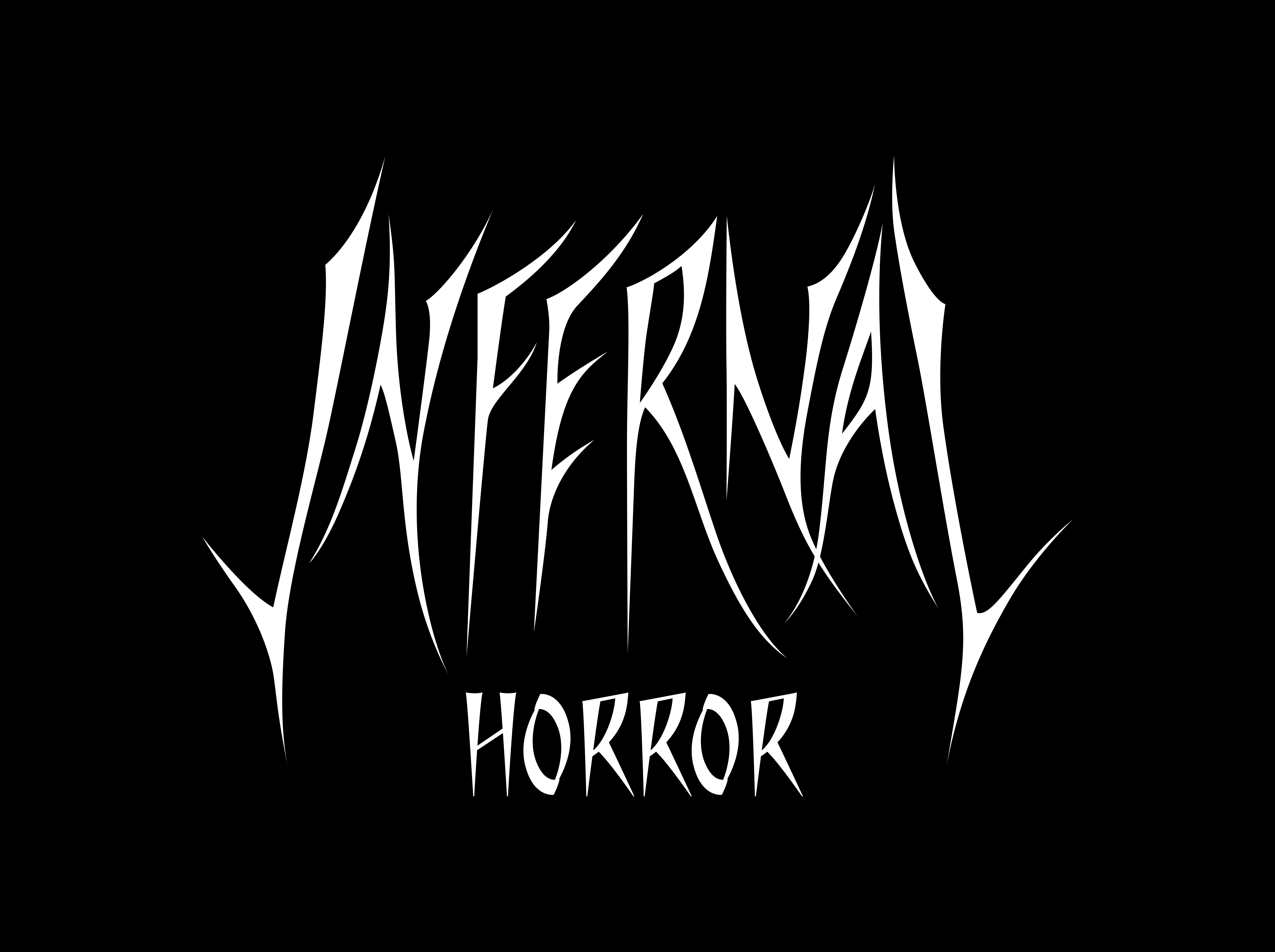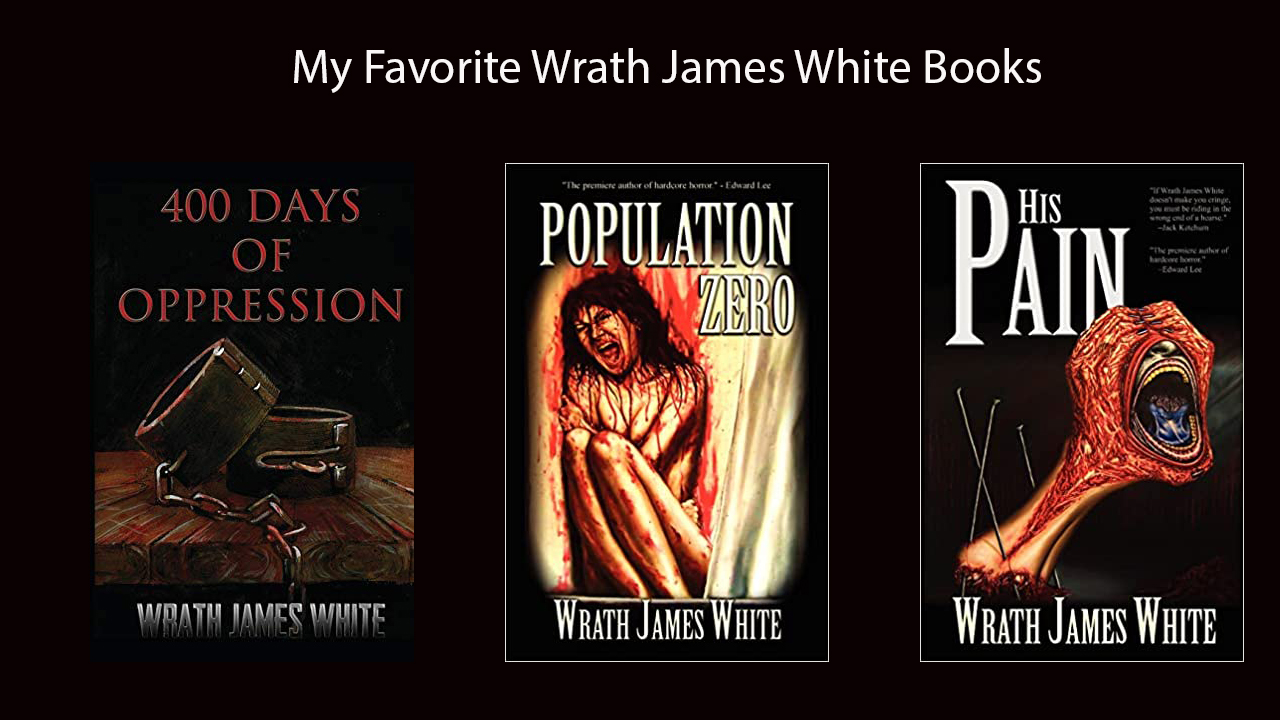Wrath James White is arguably the most visceral name in extreme horror literature. I was always drawn to Wrath’s writing because his words hold deeper meaning than the typical gore-for-the-sake-of-gore tropes we commonly read in the genre. His descriptions slice right down to the bone, every word oozing blood. His social commentary is evident in every book, perfectly sewn in the flesh of the writing.
Wrath has many books out, some I love more than others. But in this review, I want to highlight three books I love the most. These books dug into my core, tearing out viscera with each word. They’re engaging, well-written, and offer enough social commentary to show why his brutality has a purpose.
These books are 400 Days of Oppression, His Pain, and Population Zero.
400 Days of Oppression
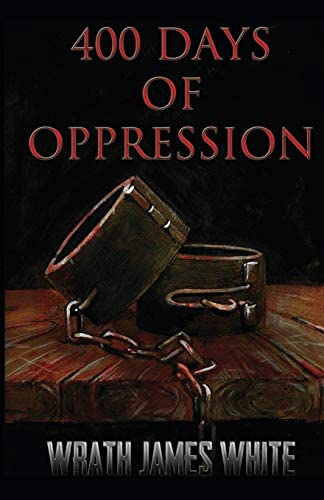
Very few books draw me in on the first page, but this is one of the few books that did.
“My name is Natasha and I am a slave, property.”
That immediately caught my attention, and I dove headfirst into this book.
A brief synopsis: Natasha is a white woman dating a black man, Kenyatta. To prove her love, Kenyatta sets her up to treat her as a slave for 400 days. When I say “slave,” I mean he goes above and beyond to recreate the treatment of African slaves.
Wrath digs deeper into the characters. Kenyatta is a troubled man who endured racism at a young age. Natasha also has her own demons and is trying desperately to prove her worth to Kenyatta.
In between the heartbreaking scenes, Wrath adds plenty of erotica. I’m still unsure how to feel about this; on one end, it does work with the Natasha and Kenyatta dynamic, but I also feel it was too much of a distraction from the gut-wrenching commentary that Wrath is trying to convey. I did appreciate the historical lessons and knowing these awful events happened in real life really hits home.
If you read my Best Books I Read in 2022 list, you likely saw this book mentioned. There’s a reason why—I ate this book up. It was one of those books where I thought about it while doing the banal life routines; I thought about 400 Days of Oppression while working, cooking dinner, and even when I was out with my boyfriend or friends. Every chance I got, I opened it up on my phone and read a chapter (or three).
His Pain
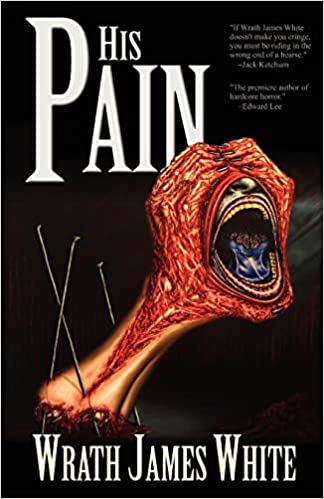
When I first read His Pain, I wasn’t sure what to expect. A book about a boy with a rare condition, who lives his life in agonizing pain. As he grows older, he wants nothing more than to hurt those around him. I love unique extreme horror, so I was willing to dig in.
Wrath wrote this book so eloquently, yet sacrificed no detail. He took you inside his main character, Jason, and you felt his suffering. Throughout his life, he lived a sad existence. He stayed inside his dark, sound-proofed room, only eating bland food and sleeping in this strange contraption that made him feel like he was floating.
But Jason’s pain wasn’t the worst part of the story. Wrath also took you inside the mind of his parents. Jason’s parents were unable to give him the little tokens of affection we take for granted, such as giving a loved one a hug. I can’t imagine what that may have felt like.
Jason’s parents tried everything, and no doctor could help. Desperate for a cure, Jason’s mother, Melanie, contacts a yogi who works with patients suffering from pain disorders.
Did the yogi’s treatment methods work? Well, kind of. The yogi’s treatments were controversial, to say the least. He made Jason accept the pain, but also made him a monster. And worst of all, Jason’s parents also became monsters.
Overall, this is one of the most chaotic books that Wrath ever wrote. I didn’t get much of the social commentary that I love from his work, but this book is still gut-wrenching. This is a petty complaint, but I wish the book was structured better. There are no definite chapters, just line breaks. Again, no big deal, but I prefer chapters.
This shouldn’t be surprising, but serious trigger warnings here. Just a few to mention: rape, incest, and murder.
Population Zero
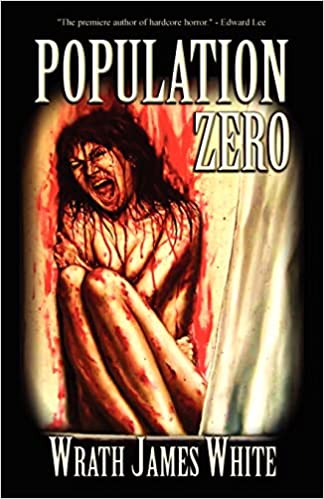
I have to admit, I liked this book more than I expected. It was on my TBR for a while, but one I never read because I hadn’t heard many people recommend it. I’m shocked more people don’t talk about this book—it’s honestly better than other Wrath books that receive more hype.
Population Zero centers around Todd, a welfare worker, and an environmentalist. He rides his bike to work and eats a strict vegan diet. He may seem like a decent guy, but there’s a dark side to him—he has a disdain for humanity. Humans are a plague that’s destroying the planet. Todd only thinks there’s only one way to save our planet, and that’s not by recycling or reducing emissions. It’s by giving forced abortions and sterilizations.
It’s crazy how much this story reflects what’s happening today, but on the opposite scale. With the overturn of Roe v. Wade, people are forced into parenthood. But in Population Zero, people are forced into infertility. The same problems apply: not being able to control your body and being at the mercy of another force, whether it be the government or Mother Nature.
Throughout the book, you discover Todd’s past and how his family life affected his outlook on child-bearing and the environment–a religious scandal, DIY abortion, and a tough lesson on raising a family. You also read about Todd’s ex-girlfriend, why they broke up, and his lingering fixation on her.
This book was also gorier than expected. As I said earlier, Todd performs forced abortions and sterilizations. Wrath doesn’t hold back any details; while a part of you rolls your eyes at Todd’s stupidity and botched surgery, the grotesque scenes are perfect for any body horror aficionado.
This book is pretty short—only a little over 100 pages on my Kindle. I flew through it pretty quickly. This book had a really good twist and an okay ending, though was slightly unrealistic. I still recommend this book.
Where Can You Get These Books?
I ordered His Pain and Population Zero on Amazon and purchased 400 Days of Oppression on Godless.
